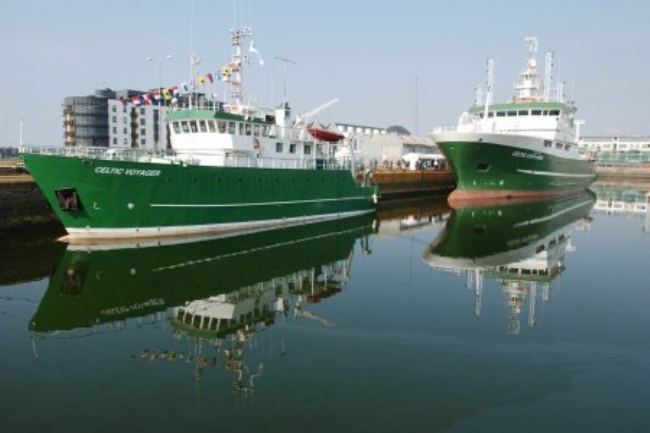Changing Course
Share this blog
Latest Maritime Vacancies
Client Executive
Technical Superintendent (Dry) – Europe
Tanker Technical Superintendent – Europe
HSSEQ Superintendent – Europe
Fleet Manager (Dry) – Europe
Ireland's researchers at sea in 2016

The Marine Institute’s Ship-Time Programme will fund 256 days at sea this year for researchers to carry out surveys that will further our understanding of the ocean, support policy development, and provide essential training opportunities to young researchers and undergraduates. This is the tenth consecutive year of the Ship- Time Programme and it will provide €3m Euro in funding. The initiative provides access to the national research vessels, RV Celtic Explorer, and RV Celtic Voyager, as well a the ROV Holland I (remotely operated vehicle ). It represents just part of a very busy schedule of research vessel programmes that includes statutory fish stock assessment, environmental monitoring, and seabed mapping surveys.
Dr. Peter Heffernan, Marine Institute CEO, said the demand for ship-time and the quality of the applications was an indication of the standard of marine research being carried out in Ireland.
“Marine research in Ireland is being carried out to the highest standards and the strong demand for ship-time shows that Ireland’s scientists are answering the challenge to better understand our oceans”, said Dr. Heffernan. “At a time when we can all see the impacts of climate change, it’s more important than ever to carry out research at sea, including oceanography, fisheries, and environmental monitoring. We know that the ocean plays a key role in controlling the earth’s climate and we know that the microscopic plankton in the ocean produce half of the oxygen we breathe. The ocean is the life support system for the planet and therefore it is essential that we understand its impact on us, as well as our impacts on the ocean.”
The Ship-Time Programme funds surveys across three broad categories – research, policy support services and dedicated training programmes. The RV Celtic Voyager will be the platform for 15 Higher Education Institute led training programmes over 73 days throughout 2016. Last year over 390 students participated in training onboard the Celtic Voyager through this programme. The opportunity to spend time at sea on a working research vessel, planning, designing and carrying out research at sea is essential and invaluable experience for young scientists.
The RV Celtic Explorer will be the platform for eight research surveys under the Ship-time programme, while the RV Celtic Voyager will support ten research surveys under the initiative. Marine Institute scientists will lead seven of these surveys on both vessels in areas that support policy development and implementation.
Among the surveys taking place this year are a survey by the Dublin Institute for Advanced Studies monitoring part of the Irish shelf using ocean bottom seismometers in an innovative research program which uses the noise from ocean waves to generate seismic images of the earth’s crust (January 13-22); identifying the location of Sea Bass spawning areas (MI – March 16-29); exploring submarine canyon ecosystem services (NUI Galway June 1-20); and mapping and creating high resolution images of World War I ship wrecks (University of Ulster –September 3-9 ).
Throughout the year you can follow the progress of many of these surveys on our scientists at sea blog (http://scientistsatsea.blogspot.ie) where the chief scientist on the survey and fellow scientists keep us up to date on their progress during their time at sea .
The provision of access to ship-time is identified as a key priority in Harnessing Our Ocean Wealth- An Integrated Marine Plan for Ireland. The Ship- time programme is funded under the Marine Research Programme 2014-2020 by the Irish Government. Applications for Ship Time funding are evaluated by a panel of 15 independent international experts (UK, European and US) and each application was reviewed by two or three evaluators.
The research vessel schedules are available to view on www.marine.ie